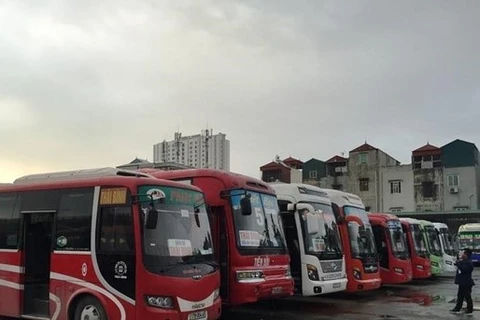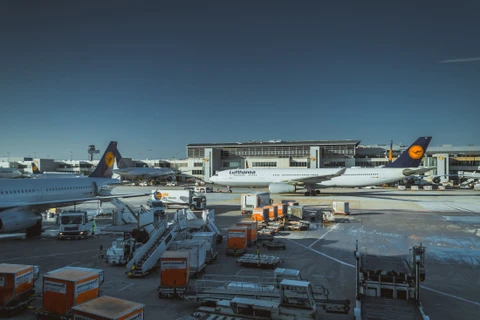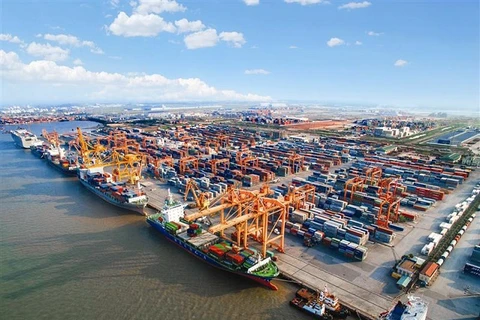Hanoi (VNS/VNA) - Inflated logistics costs were hampering the competitiveness of Vietnamese goods, according to Chairman of the Vietnam Textile and Apparel Association (VITAS) Vu Duc Giang.
Vietnam's logistics costs were 6 percent higher than Thailand, 7 percent higher than China, and 12 percent more than o Malaysia, Giang said.
This had reduced the competitiveness of domestic textile products compared to other countries in the region, even though Vietnam was considered a low labour cost country, he told the Kinh Te and Do Thi (Economy and Urban Affairs) newspaper.
"High logistics costs not only affect the competitiveness of goods, but also pose an obstacle for businesses when entering new markets,” Giang noted.
A report by the World Bank (WB) showed that logistics costs in Vietnam made up for 20 percent of the country’s GDP, while other countries ranged from 9 to 14 percent.
Economists said that if the Government wanted to improve the quality of logistics services it needed to have a clear roadmap.
Deputy Director of Hateco Logistics JSC Nguyen Van Duc recommended the Ministry of Industry and Trade, provinces and cities should pay attention to human resource, infrastructure and policy institutions.
They also need to promote links with foreign investors in logistics to provide businesses with management software and processes, Duc added.
Deputy General Secretary of the Vietnam Logistics Business Association (VLA) Nguyen Tuong said the State should prioritise developing infrastructure and logistics service centres, while offering preferential income and equipment tax rates.
Policies were needed to cut business conditions, simplify inspection procedures and mobilise social resources to invest in logistics, especially regional and international logistics centres, Tuong said.
In addition, to reduce unnecessary costs for export firms, management agencies needed to complete a logistics development mechanism. Enterprises must cut costs and improve competitiveness, he said.
Localities and authorities must focus on transport infrastructure to connect logistics centres in the process of implementing the Law on Planning, Tuong added./.
Vietnam's logistics costs were 6 percent higher than Thailand, 7 percent higher than China, and 12 percent more than o Malaysia, Giang said.
This had reduced the competitiveness of domestic textile products compared to other countries in the region, even though Vietnam was considered a low labour cost country, he told the Kinh Te and Do Thi (Economy and Urban Affairs) newspaper.
"High logistics costs not only affect the competitiveness of goods, but also pose an obstacle for businesses when entering new markets,” Giang noted.
A report by the World Bank (WB) showed that logistics costs in Vietnam made up for 20 percent of the country’s GDP, while other countries ranged from 9 to 14 percent.
Economists said that if the Government wanted to improve the quality of logistics services it needed to have a clear roadmap.
Deputy Director of Hateco Logistics JSC Nguyen Van Duc recommended the Ministry of Industry and Trade, provinces and cities should pay attention to human resource, infrastructure and policy institutions.
They also need to promote links with foreign investors in logistics to provide businesses with management software and processes, Duc added.
Deputy General Secretary of the Vietnam Logistics Business Association (VLA) Nguyen Tuong said the State should prioritise developing infrastructure and logistics service centres, while offering preferential income and equipment tax rates.
Policies were needed to cut business conditions, simplify inspection procedures and mobilise social resources to invest in logistics, especially regional and international logistics centres, Tuong said.
In addition, to reduce unnecessary costs for export firms, management agencies needed to complete a logistics development mechanism. Enterprises must cut costs and improve competitiveness, he said.
Localities and authorities must focus on transport infrastructure to connect logistics centres in the process of implementing the Law on Planning, Tuong added./.
VNA























